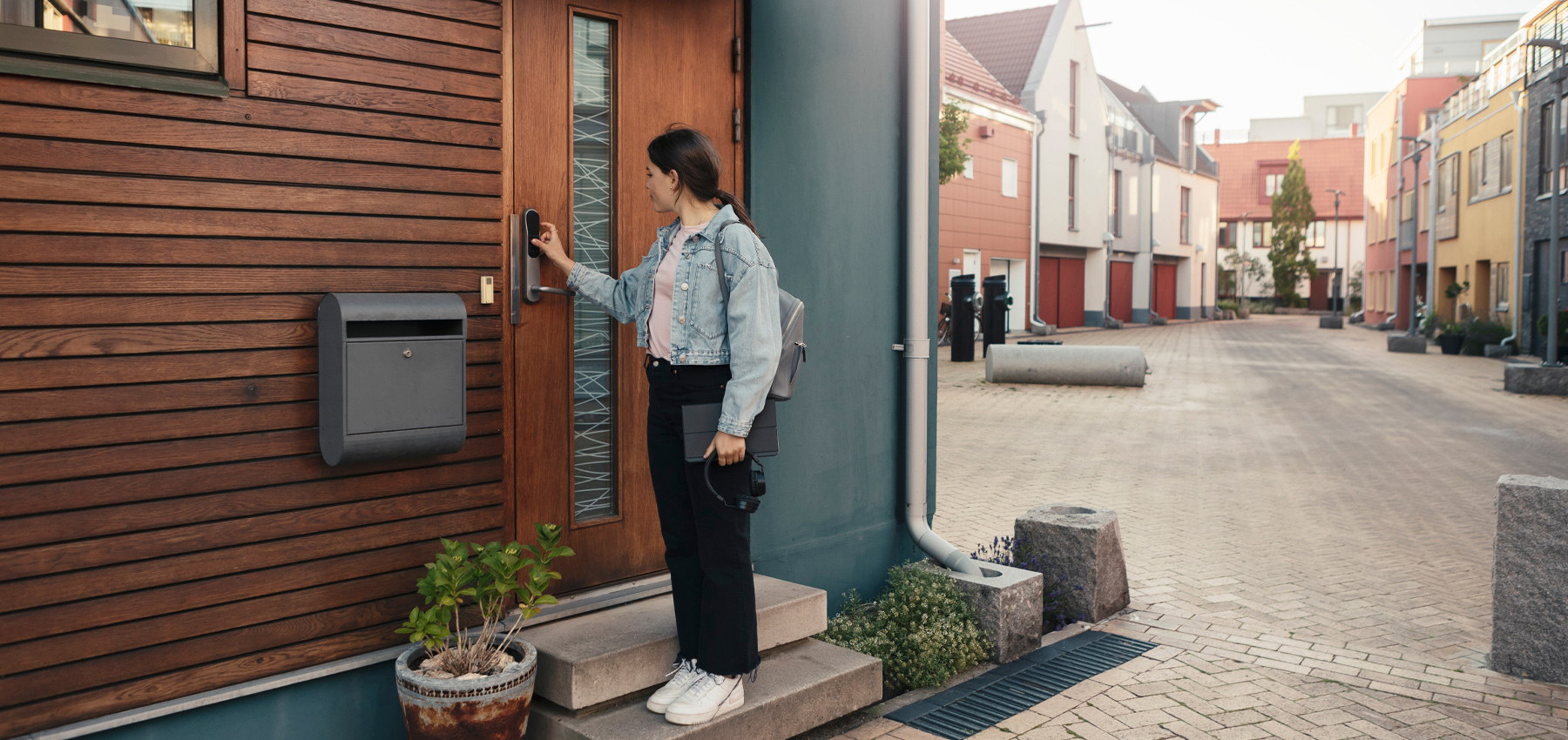Securing housing for your arrival at university is generally at the top of every international student’s checklist. Finding a place that’s close to school, within your budget, and fits your needs may seem overwhelming if you don’t know where to start. This article will outline four options for accommodation for international students coming to Canada and how to begin searching for the perfect place.
Start off by determining your monthly budget
How much rent do students pay per month in Canada?
The first decision you will need to make when planning for your accommodations is how much you can afford to pay per month. Average rental prices tend to be higher in Canada’s largest cities (e.g. Vancouver, Toronto, and Montreal) and quite a bit lower in smaller cities and towns. A good starting point for rental pricing is between $900 and $1,200 CAD per month, per room in a shared accommodation setting (apartment, house, or student housing). If you hope to live on your own in a studio or one-bedroom apartment, you can expect to pay $1,600 to $2,500 CAD per month, depending on where you live. Utilities, transportation, food, and household furniture can all add on to this cost, so don’t leave them out of your budget.
On-campus housing for international students
Most post-secondary schools provide some type of student residences on-campus, equipped with basic furniture. This is a great option for international students who want to be within walking distance of their classes. Many on-campus housing options include a shared dining hall with a paid meal plan, which can remove the pressure of having to cook and grocery shop for yourself.
Do international students have to live on-campus?
There is no requirement for international students to live on-campus so long as your specific program does not provide housing. However, you may have priority access to on-campus housing as an international student depending on your university’s policies.
What types of housing are available on-campus?
Typically, larger universities tend to have multiple types of student accommodation available right on campus. First-year residences tend to have dorm-style rooms with shared amenities like bathrooms, dining halls, and common areas. Many universities also have apartment and townhouse residences with one to four bedrooms, which are typically reserved for upper-year students. View your university’s housing website to determine which types will be available for the coming year.
What is the average cost of on-campus housing?
If you have an eight-month on-campus housing and meal plan, it may cost you anywhere from $7,500 CAD (smaller universities like St. Francis Xavier) up to $14,500 CAD (University of British Columbia) or $22,000 CAD (University of Toronto). Contact your university to confirm the cost of on-campus housing.
Tip: University housing prices may cost more than renting off-campus at first glance, but remember that many of your maintenance and utility fees are included in this price. You will also save commuting time and cost by living on campus.
How early should I apply for on-campus residence?
Because of its convenient location, on-campus housing is in high demand at some universities. As soon as you get your acceptance letter, you should reach out to your university’s student housing office to learn how to apply. You may be required to pay an application fee.
Benefits of on-campus housing for international students
- Close to classes
- Close to on-campus amenities (libraries, gyms, etc.)
- Concentrated international student community
- Average rental price includes utilities and food
- 24/7 student housing support in most universities
Off-campus housing in apartments, houses, and more
You may choose to live off-campus for more housing availability, to save money, or for personal reasons. Off-campus housing also allows you to explore your city beyond your university’s campus life by living in a new neighbourhood.
One-bedroom apartments, shared apartments, and shared houses are the most common types of off-campus rental. Students usually sign a one-year lease in either May or September, which includes the summer term. Depending on your province, you may be expected to put down your first month’s rent, last month’s rent, or a security deposit (half a month’s rent which you will receive back at the end of your lease if the property hasn’t been damaged) at the time of signing your lease.
Extra costs may not be included in the advertised rental price. Check to see if utilities (e.g. heating, water, electricity, wifi), any furniture, parking costs, or other expenses are included before you sign the lease so you can budget accordingly.
Tip: Subletting is the practice of temporarily renting out a room that you are currently on the lease for. If you know you will go back to your home country in the summer, make sure your landlord is okay with you subletting your room for that time when you sign the lease. Subletting is a common practice for students, but can be more high risk as you are responsible if your sublet causes damage to the unit or doesn’t pay their rent.
Benefits of off-campus housing for international students:
- Plenty of options for housing style and location.
- Students can save money by picking cheaper accommodation.
- More freedom and independence in daily life (cook and shop for yourself).
- Choose your own roommates.
- Become familiar with everyday Canadian life outside of campus
Where should I look for off-campus housing?
You can begin looking for an apartment or room on Padmapper, Rentals.ca, Facebook Marketplace, Craigslist, Kijiji, and many other smaller rental sites. You may also be able to find Facebook groups dedicated to student housing at specific universities with a search on Facebook (e.g. “Student housing at the University of Toronto”) or through your university’s international student department. If you have any friends or family living in the area of your school already, they may also be able to put you in touch with someone with a place that needs a roommate.
Tips:
With online listings, take caution to avoid scams or misrepresented listings:
- Avoid “too-good-to-be-true” deals that are listed far lower than market price.
- Never send money if you don’t feel that the listing is legitimate.
- Never send unnecessary personal information to a potential landlord.
Planning your commute
Location and transportation are important aspects to keep in mind when choosing an off-campus apartment. You may be able to walk, use transit, bike, or drive to campus. Ten minutes to one hour are common commute times for students living in larger cities — if your commute starts looking longer than one hour, you may want to consider finding somewhere closer to campus. If your region receives a lot of rain or snow in the winter, take into consideration that your commute times may become longer depending on inclement weather.
If you know you will have a longer commute, consider planning your courses around this aspect of your life to save as much time for studying as possible. Many commuter students schedule all of their classes on a few days of the week, instead of travelling to campus every single day.
All about public transit:
Planning to take transit to campus? Get familiar with public transportation in these major cities: Toronto, Vancouver, Montreal, Calgary, Edmonton, Ottawa, and Winnipeg.
Living in a homestay with a host family
What is a homestay?
A homestay is a different type of off-campus rental, where a student can live with a host family in their home. Typically 1-3 meals are provided per day, and you may find it helpful to have your host family introduce you to the city and make you feel more at home while away at school. Homestays may cost a little more, but you will have more time for your studies as the majority of the cooking and cleaning are taken care of.
Where to find a homestay placement
These homestay networks have specific criteria for host families, so you can feel safe and secure in your placement and receive assistance at any time:
How much does a homestay cost in Canada?
According to the Canada Homestay Network, a homestay will cost between $600 and $1000 CAD per month, depending on how many meals and amenities are included. You may be charged by the night, rather than by month.
Exchange service hours for room and board
Similar to a homestay, some international students create arrangements with a household to exchange a service (this may be babysitting, cleaning, animal care, or other work around the house) for free room and board. This type of arrangement may be found through classified websites like Kijiji or Craigslist. You may have a formal written contract or an informal, unwritten contract. As with any online listing, use caution when contacting online listings and try to arrange an in-person meeting or video call to meet your host before moving in.
Short-term furnished rentals
What is a short-term rental?
Short-term rentals are available for shorter periods of time than long-term apartment rentals (anywhere from a few days to a full four-month semester).
Where can I find short-term furnished rentals?
Short-term rentals can be found on Airbnb, Vrbo, Sublet.com, and Kijiji and many other popular rental sites. As with any online listing, use caution; many short-term rental sites will allow you to read the reviews of your rental host to be sure they are legitimate.
How to use short-term rentals to your advantage as an international student
If you haven’t been able to find long-term accommodation for the school year, you can turn to short-term furnished rentals to find somewhere to stay while you search for a new place. It is a good idea to get a short-term rental in or near the neighbourhood you eventually plan to live in to get familiar with its layout, businesses, and transportation options.
Living on your own can be a great experience if you manage to find the right place. Whether you plan to find accommodation on- or off-campus, you now have the tools to start looking for your home-away-from-home at university. Once you have decided on your monthly budget, there are plenty of options available to fit your needs as a student.







